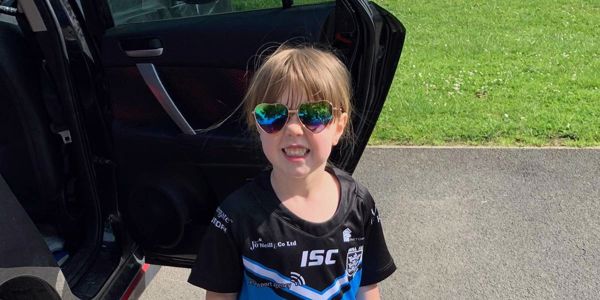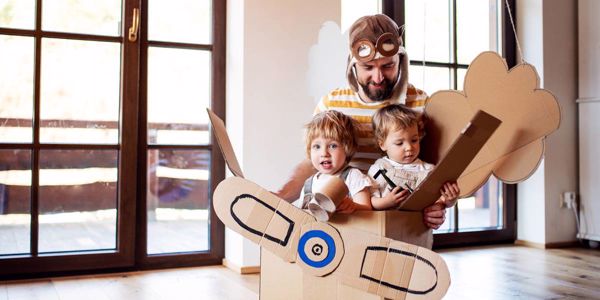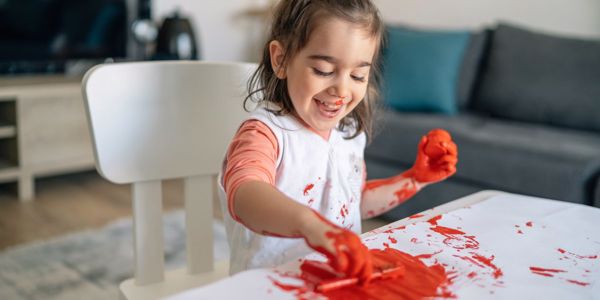Children learn and grow through play. It can support many elements of their development, including their cognition, language and physical strength. Engaging in play can also be a way for children to practice and improve on their social skills, develop their creativity and imagination, and learn more about their own and other people’s emotions.
At the minute, your child may be spending more time at home due to lockdown restrictions, away from their nursery, preschool and activity groups. With fewer opportunities to play with their friends, there are a variety of activities and games that you can do together to make the most out of their playtime and support their development.
Role-play games
Children learn a lot from role-playing with adults or other children. Pretend play gives a child the opportunity to practice social scenarios and develop the relevant social skills.
Role-play games that you could play include:
- Going on a bus or to the shops – role-playing games that allow your child to learn about changes that have been made because of the coronavirus lockdown would be very valuable to play. These give you a chance to talk about new processes that have been put into place so that your child can become familiar with such things as one-way systems, facemasks and social distancing
- Going to the playground – lockdown may mean that your child hasn’t had the opportunity to practice social skills as much as they would have been able to at preschool or nursery. One game you could both play is; ‘pretend we’re two friends going to the playground but there is only one swing’. Playing through this scenario will help to teach them about problem solving, the importance of communicating and sharing
- Use paints, colouring pencils or playdough to both draw and talk about faces that show different emotions
- Print out pictures showing different facial expressions, get your child to decide on the emotions they show and act them out together. There are card games available that do this too
- There are ‘social stories’ available that focus on emotions and feelings. These tell the stories of characters with different emotions and talk about the best ways of coping with these feelings. As you go through the book, you could both recreate the emotions on each page and talk about why and when people may feel this way
Read ‘social story’ books together
Reading books together can help your child with their communication and language skills, giving them the opportunity to develop their vocabulary, speech as well as their understanding of letters. Rereading stories can also support their memory skills.
You may want to think about also introducing ‘social story’ books at this time. These books are often used for people on the autistic spectrum and explain common social scenarios, such as classroom routines and playtime with friends. As children have been spending less time in their usual social settings, these books give you an opportunity to talk about normal or slightly changed social scenarios with your child so that they can recognise and remember what to expect and how to react in them.
Turn-taking games
Taking turns is an important part of play and is something that children often find hard to do. Taking the time to play these games with your child will help them to practice sharing, waiting and being patient. Introducing phrases like “your turn” and “my turn” can also support their communication.
Turn-taking games that you could play include rolling a ball to one another, stacking blocks, or playing a card game like Snap.
’Emotion reading’ games
When a child struggles to read other people’s body language and facial expressions, this can lead to them facing difficulties when playing with other children. Learning about emotions can support them in these situations, and help them to identify their own feelings too.
Free play
While playing with your child is valuable, it is also beneficial to give them time for independent play. Giving them the freedom to explore their toys in their own way can help with their creativity and imagination. Being able to focus and stay occupied with a game can also help to develop their self-reliance, independence and confidence as they come to recognise that they are able to do certain things for themselves.






